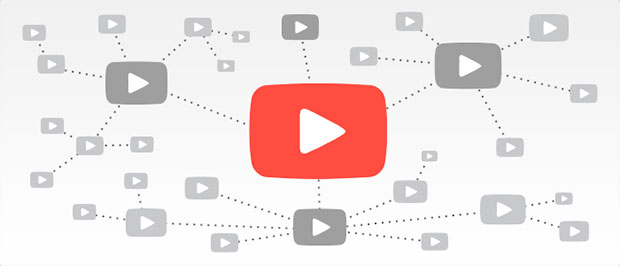Viral. It’s a term that’s held a lot of weight over the past seven months. With a viral pandemic circulating around the globe, and new TikTok dances racing through the Internet, the word seems to dominate our lives both on and off the screen.
Over the past few months, different levels of restrictions on social gatherings have been implemented. As more information surfaces, experts have kept the public informed on the safest ways to get back to a sense of normalcy. Despite the continuous changes to the guidelines, two recommendations remain constant: avoid large gatherings and maintain six feet of social distance.
Dr. Anthony Fauci, director of the National Institute of Allergy and Infectious Diseases, continues to remind us of the extremely contagious nature of the virus. Despite experts’ attempts to embed this rule of thumb into society, social distancing has loosened, or even ceased, for many. Large gatherings without masks have commenced once again and people have let go of many of the COVID-19 guidelines. Among these groups of people are influencers.
The broad category of “influencers” includes YouTubers, TikTok stars, Instagram personalities, and celebrities. In essence, an influencer is someone with a following on one or various social media platforms. Influencers do what their title entails: they influence.
Influencers have a unique opportunity to sway public perception. While adoring fans have idolized their favorite celebrities for decades, influencers today are in an unprecedented position because their every move is followed on social media. As a result, what influencers post on their platforms has the power to shape their fans’ perspectives, whether they realize it or not.
As restaurants and stores reopened with restrictions based on social-distancing guidelines, many influencers started to get together again. Fans were ecstatic to see a new YouTube collaboration between half of the “Sister Squad,” a former group of influencers consisting of Youtubers Emma Chamberlain, James Charles, and The Dolan Twins. “Hi sisters!” Emma and James harmonized as they introduced the collab on James’ channel. “I didn’t think I’d ever be in this room again,” Emma declared later in the introduction.
This collaboration was significant to fans because the two YouTube stars were thought to have had a falling out nearly two years ago. Nevertheless, the pair reunited in two YouTube collaboration videos in early September. While followers were excited to see the animated duo reunite, their reunion begs the question on whether or not the resurfacing of YouTube collaborations amidst a pandemic is ethical.
Certainly, Emma and James are not the only influencers that have begun to reconvene. In fact, they’re just the tip of the iceberg. Members of TikTok’s “Sway House,” a content hub composed of several famous male TikTok creators, have also increasingly flaunted their relatively large get-togethers on the app. Alex Cooper, host of the popular Call Her Daddy podcast, has begun to host in-person interviews with various guests, including Miley Cyrus. (Granted, Alex and her team did get tested for the virus prior to interviewing Miley). Influencers across a variety of platforms have increased their social and professional gatherings, which sways the general public to do the same.
Stars such as Addison Rae and Kylie Jenner have modeled the most recent additions to their merch lines, face masks, while in public. Ironically, these celebrities and their friends aren’t wearing these masks, or any masks, while gathered with groups of friends in their L.A. homes.
Members of the broader media community, including news anchors and talk show hosts, have also reunited with their colleagues and guests in-person. After several months of hosting the Today Show over Zoom, five of the primary anchors reunited for a socially distant backyard gathering in mid-July. The show has since resumed its in-person filming, with the hosts of the show seated at a distance from one another. Jimmy Fallon, host of the Tonight Show, presented his first in-person guest since the start of the pandemic, John Cena, in his episode following the first Presidential Debate. Media stars across nearly all platforms are beginning to collaborate with one another on camera.
So why do people in the media matter? Aren’t a lot of people beginning to hang out in large groups again? The answer is yes. What’s different about the situation of influencers versus “normal” people is that influencers have a following. Fans see every move that a celebrity decides to post to social media, which, whether subconsciously or consciously, influences their own ideas and behaviors. It’s their job to influence their followers. Whether it’s promoting a new hair care line, drinking coffee from a particular coffee shop, or even gathering with groups of people during a pandemic, influencers sway their followers’ beliefs and perspectives.
Should we let celebrities off the hook? Afterall, it’s their job to produce content for people to enjoy. Public figures’ influence on the general population is yet another reason that influencers should follow COVID-19 guidelines. Fans and viewers across all age groups are influenced by what they see on a screen, whether that be through YouTube videos, social media, or news channels. Just as the virus is highly contagious, so is behavior. The more often individuals see other people, especially those they admire, ignoring social distancing guidelines, the more likely they are to do so themselves. This domino effect could send the world into an even deeper hole of contagion.
As the virus continues to surge, we have a responsibility to ask ourselves whether or not our individual actions are beneficial to public health and the larger community. Not only do influencers share this responsibility, they must also ask themselves how their own behavior impacts that of their followers. Despite the loosened attitudes of many regarding COVID-19, the virus endures all over the world. The behavior of influencers in public as well as on their platform is, arguably, just as contagious as COVID-19. While the content produced from these collaborations may curb our quarantine-boredom for the time being, the ramifications are far more severe. Talk-show hosts and Internet personalities alike have a responsibility to exemplify ethical behavior to protect public health, even if that means fifteen more minutes of boredom for fans.





